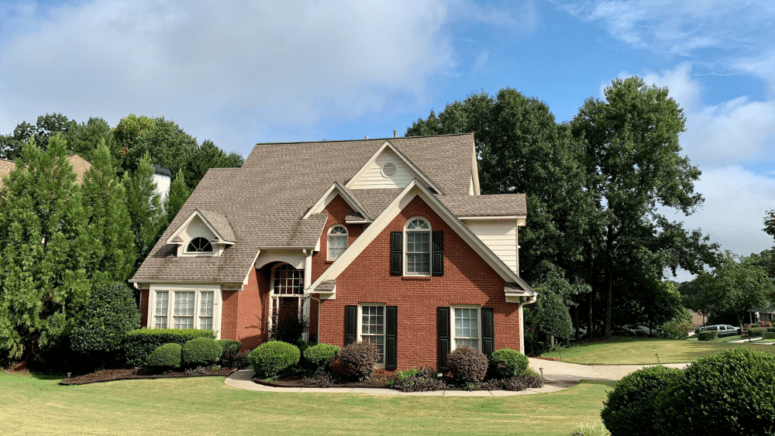Should You Pay Off Your Mortgage Early? Pros and Cons
- Published on
- 13 min read
-
Gina Rodrigues, Contributing AuthorCloseGina Rodrigues Contributing Author
Gina is a freelance writer and editor who specializes in real estate and personal finance. She brings more than ten years of experience as a licensed agent and property investor. When she isn’t writing, she can be found tending to the sheep and chickens at her suburban homestead outside of Seattle. Gina holds a B.A. in English from California State University.
-
Richard Haddad, Executive EditorCloseRichard Haddad Executive Editor
Richard Haddad is the executive editor of HomeLight.com. He works with an experienced content team that oversees the company’s blog featuring in-depth articles about the home buying and selling process, homeownership news, home care and design tips, and related real estate trends. Previously, he served as an editor and content producer for World Company, Gannett, and Western News & Info, where he also served as news director and director of internet operations.
You open your monthly mortgage statement one morning and nearly spit out your coffee — your loan balance reads zero. It’s a familiar daydream that also feels like a distant fantasy to many homeowners who have a home loan.
If you find a little extra wiggle room in your budget, you might be able to enjoy that mortgage-free feeling sooner than you ever thought. Whether you recently landed a pay bump or inherited a tidy sum, putting additional cash toward your principal mortgage balance can help you pay off your mortgage early.
But is paying off your mortgage loan the best financial strategy? Some financial experts argue that mortgage debt could be considered “good debt.” Ultimately, whether to pay it off early depends on your overall financial goals and priorities.
Should I pay off my mortgage?
In certain situations, it could be better to hold on to your mortgage and make regular payments as scheduled. In other instances, paying down your loan and eliminating your mortgage early could give you a boost to explore other financial options.
Figuring out the best way to channel your extra cash boils down to your personal situation. The decision hinges on both your financial profile and your philosophy about whether the extra money could be put to better use elsewhere.
To walk us through the ins and outs of mortgage payments, we spoke with two industry leaders who know a thing or two about mortgages:
- Chloé Moore, an Atlanta-based certified financial planner (CFP®) ranked as one of the 100 top financial advisors by Investopedia;
- Arkansas real estate agent Tara Limbird, whose team landed on the Wall Street Journal’s list of top real estate firms in the U.S
Here’s what you need to know before diverting extra funds to your home loan and paying it off early.
The basics: how paying off your mortgage early works
Every time you make your monthly mortgage payment, your loan servicer applies a portion of the payment toward paying down your loan balance, while the remainder pays for interest.
Although you pay a fixed amount each month, the split changes with every payment. At the beginning of your loan term, a larger portion of your payment pays for interest. But as you pay down the loan balance, your interest fees decrease. Over time, the split reverses — and a larger chunk of the monthly payment applies to your loan balance than to interest fees.
Principal paydown example: Let’s say you took out a $240,000 mortgage loan to purchase a $300,000 home. You locked in a 3% fixed interest rate over 30 years, and your monthly payments are $1,012. When you made your first payment, $412 of your payment was applied to the loan balance, while $600 was paid for interest.
And after making faithful payments for 15 years, the loan balance has dropped to just over $146,000. With a lower loan balance, you pay less in interest fees, or $368. The larger remainder, $644, pays down your principal.
See the table below for an example of how the interest fee and loan balances changed over time with regular payments.
Example of how mortgage payments amortize over time
| Month | Loan balance | Principal paid | Interest paid |
| 1 | $239,588 | $412 | $600 |
| 88 | $199,518 | $512 | $500 |
| 180 | $146,521 | $644 | $368 |
| 360 | $0 | $1,009 | $3 |
After 30 years of monthly payments, you’d pay a cumulative total of $124,666 in interest and the loan balance in full.
>>Learn more: Wondering how much your new home will really cost each month? Our mortgage payment calculator makes it simple to estimate your monthly payments based on price, interest rate, and loan term. Try it now to plan your budget and make smart buying decisions with confidence.
Adding to your regular payment pays off your mortgage sooner
What happens if you pay an extra $100 every month toward the same loan’s principal balance? Two things: you pay less in overall interest, and you pay off your loan faster. That’s because the extra payments accelerate paying down the mortgage balance, which in turn reduces interest fees.
According to Freddie Mac’s Extra Mortgage Payments Calculator, you’d save $18,828 in total interest by the time you pay off the loan in our example. You’d also pay off the balance four years earlier than if you didn’t add an extra $100 to your monthly payment.
Pros of paying off your mortgage early
More than 40% of homeowners don’t have a mortgage. Imagine not having that monthly bill staring at you, more cash for vacations, hobbies, or just treating yourself to extra fun. Paying off your loan early can get you there sooner, giving you freedom and peace of mind. Here’s why it pays off to accelerate your home loan payments and join this enviable group:
Pay less interest over the life of the loan
By paying off your mortgage loan early, you’ll save on interest expenses over the life of the loan. Depending on your loan terms and the amount you prepay, your savings could add up to thousands of dollars, keeping more money in your pocket over the long term.
Free up cash for other purchases or investments
In 2024, homeowners who relocated while carrying a mortgage had a median monthly payment of $2,225, which includes only principal and interest payments. Additional expenses, such as homeowners’ insurance, property taxes, and homeowners association (HOA) fees, further increase the total cost of homeownership.
Now, imagine the financial freedom of having no mortgage payment. Without that monthly obligation, you could redirect those funds toward investments that accelerate your path to early retirement or perhaps even fund a dream vacation to Tahiti.
When you’re mortgage-free, cash that was once budgeted for mortgage payments can be used toward other financial goals, says Moore.
Gain peace of mind
If you’re risk-averse, paying off your mortgage early may take a weight off your mind, knowing that you own your home outright. “For some, the peace of mind that comes with being debt-free far outweighs any financial benefits,” says Moore.
Limbird agrees, adding that while there may be reasons why it’s better not to pay off your mortgage early, “for some people … it’s almost a sense of accomplishment to have your home paid for.”
Transform your financial outlook and mindset
A staunch advocate for paying off all debt regardless of the type, financial guru Dave Ramsey recommends venturing into investment properties to accelerate wealth after paying off your home loan, not before. When you pay off your mortgage, Ramsey says, “It changes the way you operate the rest of your money because you’re standing on such a more solid foundation to live your life.”
Cons of paying off your mortgage early
A mortgage-free life may offer a sense of accomplishment and freedom, but diverting excess cash to your home loan could limit you in other ways. These are some reasons why allocating your extra budget elsewhere may prove a better use of your money.
Lose out on a tax benefit for having a mortgage
If you itemize deductions on your federal tax return, you won’t be able to itemize the mortgage interest tax deduction after your home loan is paid off, since you’ll stop making interest payments. However, you’d still be able to deduct property tax expenses if you qualify.
For most homeowners, the lost deduction doesn’t affect their taxes. Only about 10% of individual tax returns include itemized deductions. The majority of individual tax filers opted for the standard deduction, which doesn’t allow for an itemized interest deduction.
Miss the chance to reduce more costly debt first
If you carry credit card or personal loan debt along with a mortgage loan, it probably makes sense to divert extra funds toward that higher-interest debt before paying off your mortgage. The Business Insider reports that the average annual percentage rate (APR) for credit cards in their database ranges from 18% to 30%.
When compared to the 6% mortgage interest rates, it’s likely that you’ll save more on interest fees per dollar borrowed if you prioritize high-interest consumer debt first before your mortgage.
Forgo investment opportunities that could yield higher returns
Limbird points out that, with the historically low mortgage interest rates many homeowners secured in recent years, if you have additional income, paying off the mortgage may not be the best option.
“It might be more advantageous for someone to be putting that extra money into a retirement plan instead,” she says. Limbird also encourages homeowners to speak with their financial advisor about potential investments. “If your interest rate is 2.5% or 3% … If you could earn more than that [investing], then you’re gonna come out ahead.”
Moore agrees that there’s potential to earn more overall by investing extra cash instead of paying off a low-interest-rate mortgage. In some cases, homeowners “can position themselves to pay off the mortgage balance from their investments down the road,” she suggests.
Encounter difficulties accessing home equity quickly
By making extra loan payments, you increase the amount of equity you have in your home. Home equity, considered an illiquid asset that can’t easily be withdrawn, isn’t easy to tap into if you’re in need of funds fast.
If you’re saddled with an unexpected expense or have an emergency, it takes time to access funds tied up in your home. You’ll either need to sell your home or refinance to access cash from your home equity. If you don’t have an emergency fund that’s easy to access, you may want to reconsider paying down your mortgage balance first.
Tie up money that could cover more pressing financial needs
Other financial goals could take precedence over paying off your mortgage. You may want to establish a college account or retirement fund before you channel extra funds to your mortgage. Or perhaps you’re ready to retire an old vehicle. It may make sense to attend to other financial obligations before your home loan balance.
Pay a prepayment penalty if your loan servicer charges one
Some lenders charge a penalty fee if you pay off your loan early, or if you pay a specific amount above what you owe for the month. Prepayment penalties don’t apply to all loans, and lenders must disclose whether a penalty applies to your loan before you sign the loan documents. Under the Truth in Lending Act (TILA), prepayment penalty terms must appear on an applicant’s loan disclosures.
Penalty amounts vary depending on the specific loan terms. Some lenders charge a percentage of the loan amount or interest fees for a set number of months. Other lenders charge a flat penalty fee or apply a sliding fee schedule, where a prepayment early in the loan term triggers one fee, while a prepayment five years later triggers a different penalty amount.
If you decide to pay off your mortgage early, commit to a strategic plan
You’re committed to paying off your mortgage early, but how should you do it? That all depends on your financial standing and comfort level. “I don’t feel that one method of paying off your mortgage early trumps the rest,” says Moore. “The best decision for you is based on your current mortgage terms, financial situation, risk tolerance, and personal goals.”
To determine a strategy for paying off your mortgage, select a method that suits your financial profile. If you receive a pay raise, for example, you may want to commit that extra $200 every month to your loan payment. But if you receive a one-time inheritance, you might consider a single, lump sum payment to reduce your principal loan balance.
Pro tip: If you pay down your balance by submitting loan payments higher than your monthly minimum, Limbird says to make sure the loan servicing company applies the excess payment toward your balance, not as a prepayment for future months. Call your lender before you make the payment and confirm the company applies the correct amount to your balance when you receive your loan statement.
Methods for paying off your loan early
Compare the following payoff strategies by calculating how each method impacts your interest savings and payoff timeline. Use an online calculator such as Freddie Mac’s Extra Mortgage Payments Calculator to run the numbers. Then select the solution that works best for you.
Bi-weekly payments, or one extra monthly payment each year
When you set up a bi-weekly payment schedule with your loan servicer, you pay half of your monthly payment amount every other week. Because there are 52 weeks in a year, this results in 26 half-payments, which equals 13 full monthly payments instead of 12.
Some mortgage servicers charge a fee for this service, but you can also make monthly payments as usual and add a 13th payment on your own. You’ll achieve the same result.
Monthly payment
You can also choose a specific dollar amount that you’re comfortable budgeting and commit to adding that figure to your monthly mortgage payment. So if you owe $1,000 per month, you may feel comfortable allocating an extra $100 for a total of $1,100 each month.
Since you aren’t obligated to make the extra $100 each month, you can always skip the add-on amount if you find yourself in a temporary financial pickle. On the flip side, you could also choose to increase the add-on amount if you find extra room in your budget.
Refinanced loan
Another strategy is to pay off your mortgage early by refinancing to a shorter loan term. With the refinance strategy, you apply for a new loan that pays off your existing mortgage. If your current loan term has 24 years remaining, for example, you could pay off your mortgage sooner by applying for a 10-year mortgage.
To determine whether refinancing fits your financial goals, calculate your interest savings and weigh the risk of taking on a higher monthly payment. And don’t forget — you typically incur closing costs when you refinance.
Moore points out that refinancing to a shorter loan term often requires a higher monthly payment amount, which you’re locked into for the duration of the loan. You’ll want to compare interest fee savings before you commit, she advises. “If your [current] interest rate is competitive and there are no prepayment penalties, it’s worthwhile to compare how much interest you’ll save with a refinance versus making additional payments,” says Moore.
Limbird also warns homeowners to consider carefully before choosing a shorter term and higher payment, particularly if their income fluctuates. If you rely on commissions or self-employment income, there’s a chance you could struggle with a higher payment during an economic downturn.
Lump sum payment
This involves putting a large, one-time amount toward your mortgage principal in addition to your regular monthly payments. By directly reducing the principal, a lump sum payment lowers the amount of interest you’ll pay over the life of the loan, potentially shortening your mortgage term by years. Unlike small extra payments that chip away gradually, a sizable lump sum can make a noticeable impact immediately.
Weigh your options before paying off your mortgage early
Where you allocate extra funds can be a balancing act that requires strategic and individualized financial planning. Paying off a mortgage early can work well for one person’s finances but hurt another.
If you’re in doubt, consult with a reputable financial advisor for advice that fits your specific situation. Ultimately, whether it’s a good idea to pay off your mortgage early or not depends on your financial goals, cash flow needs, interest rates, and other investment opportunities.
Header Image Source: (Johnson Johnson / Unsplash)










